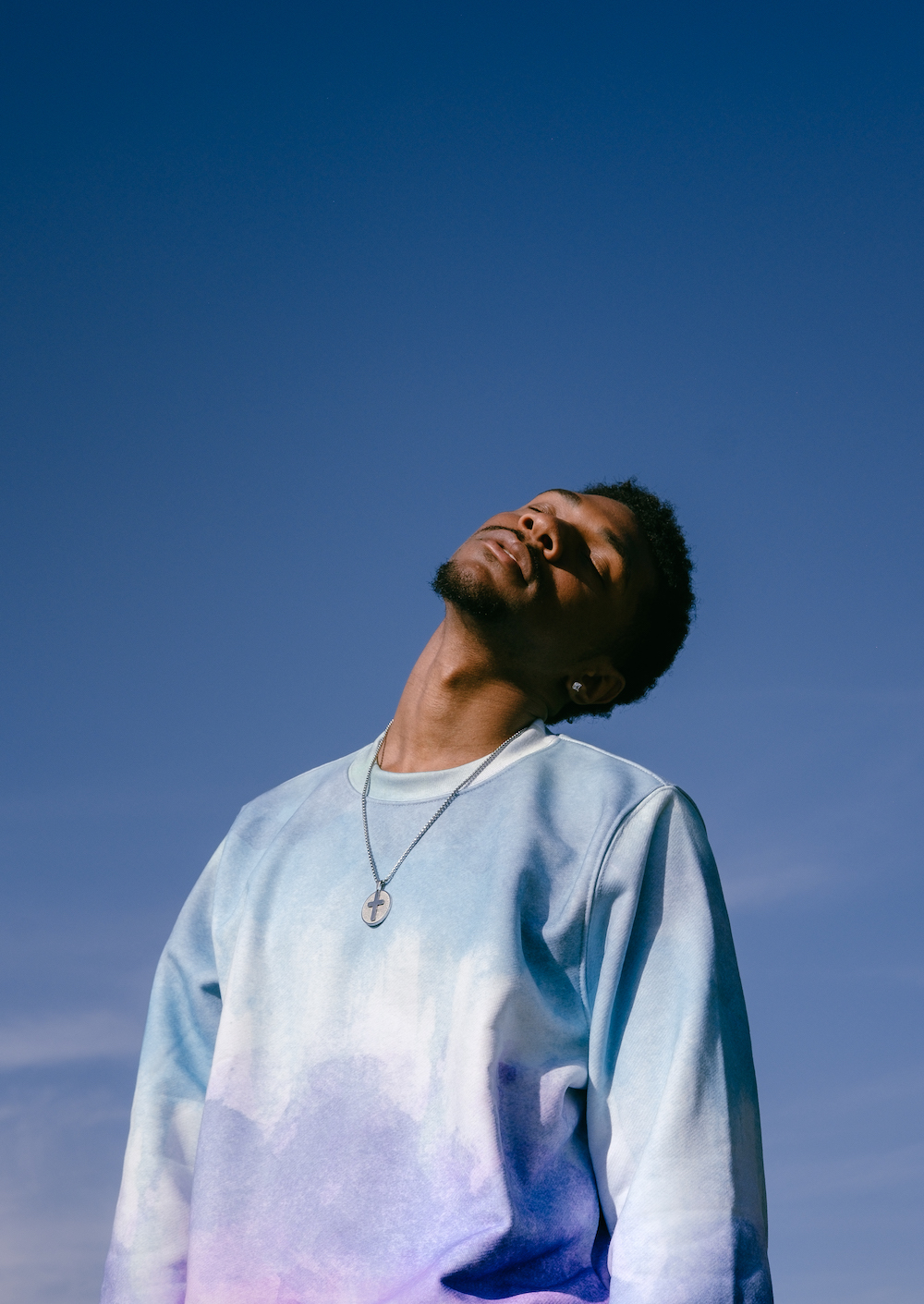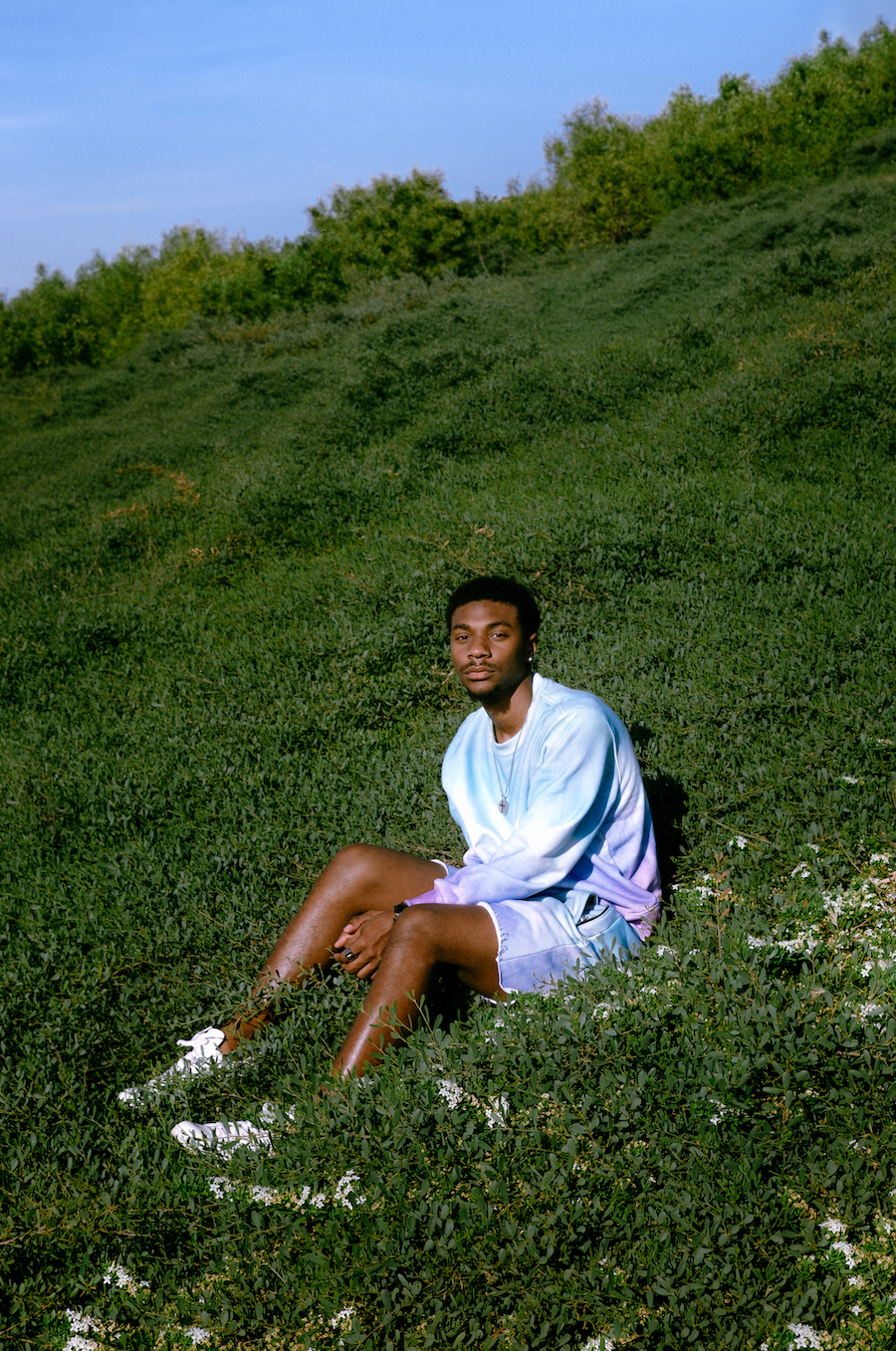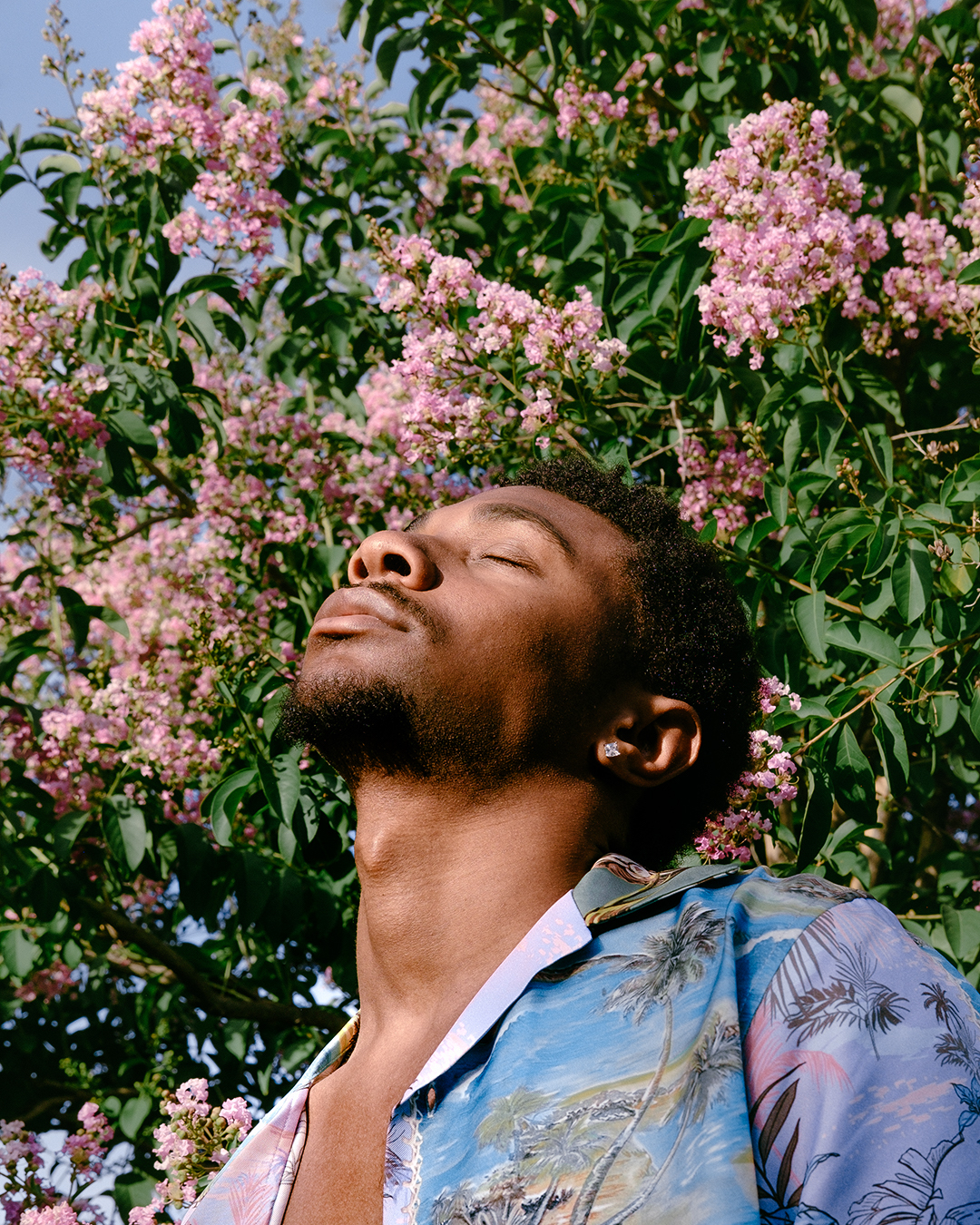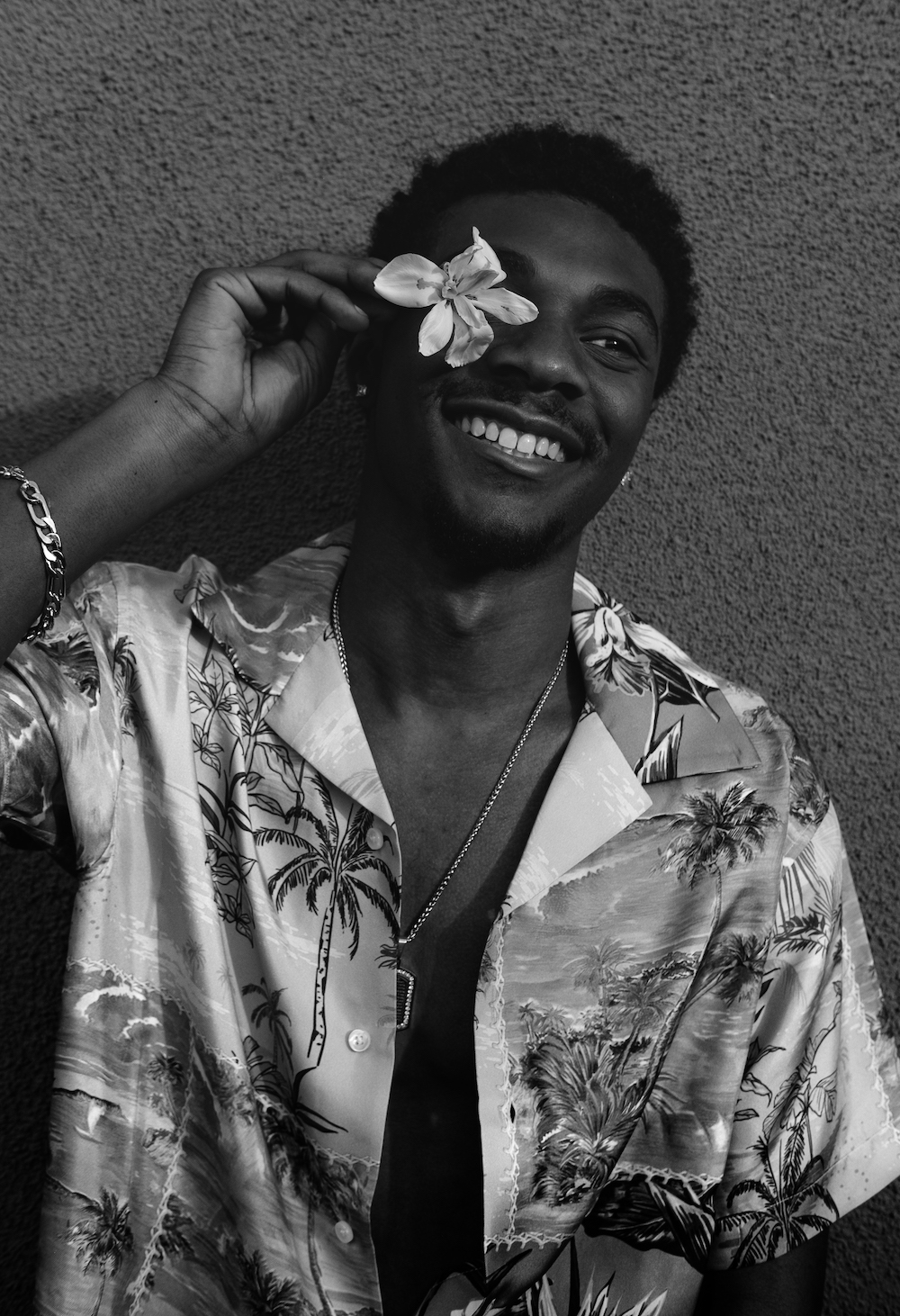Outer Banks’ Jonathan Daviss Breaks Hollywood Black Stereotype
Houston-bred actor talks Outer Banks and new depths to his role on and off-set.

If you felt like you could relate to Pope in the Netflix original, Outer Banks it’s because for once, you can. After watching the show, there is undoubtedly no better person to play Pope Heyward than 21-year-old, Jonathan Daviss. But when he first auditioned, he came out of the casting doubtful. The character Daviss was auditioning for at first seemed to him, “super-duper nerdy, and I’m a nerd,” he joked. Jonathan, who is 6’1 and athletic, stood out among the other cookie-cutter actors waiting to read lines for Pope, making him internally question: Do I stand a chance?
Following the second call back, his worries were eased. Both the directors and Jonathan knew this match was something special. In terms of the whole cast, everyone had the ‘it’ factor, there were no big-egos or well-known names on set. Jonathan recognized, “We all felt like the underdogs. All of us getting those parts, nobody would have suspected those kids. Then after you watched the show, it was a no brainer the whole time.” That’s a testament to the casting director of Outer Banks Daviss credits. “You didn’t just go find some actors, you found the Pogues.”
The cast quickly and truly formed a bond like the close-knit gang they portray in Outer Banks. So much so, that their genuine connections bloomed into off-set romances. In particular, Jonathan’s co-stars Madelyn Cline and Chase Stokes whose characters —Sarah and John B— date in the series. Respecting their privacy, Jonathan could tell the two love birds had chemistry beyond the characters they played on set. “It kind of really started towards the end of filming,” Jonathan revealed. However, on-set, we can look forward to seeing Pope and Kiara’s relationship blossom in Season 2. All romances aside, with sincerity Jonathan, emphasizes about the cast as a whole, “[I] found my best friends.”

Before developing these real-life connections with his co-stars, Daviss had to connect with his character. It was important to him that Pope wasn’t diminished to “just a nerdy Black kid” because that’s not everything he has to be. Noticeably, Pope’s character explores far beyond the atypical Black characters that in most cases, are one-dimensional when compared to their white leads.
In describing Pope, Daviss notes, “He’s a surfer. He’s funny and can do dangerous stuff. Pope’s loyal, awkward, sweet, but also a wildcard.” His character is best described as the brightest and one that viewers don’t expect to win the fight and then prevails.
Pope, John B, Kiara, and JJ, known as “the Pogues” live on the south side of the Outer Banks among the lowest members of the food chain, making up the working-class of table bussers and yacht cleaners. Clearly differentiating themselves from the privileged Northern Islanders, known as the “Kooks”.
Choosing to prioritize his friends over his family and future, Pope is teetering on the edge. Between living the carefree life and throwing boozy beach parties, he’s also subjected to making rash decisions. For instance, leaving home for days, oversharing his feelings towards his best friend Kiara, and becoming an accomplice in multiple crimes to solve a mystery of legendary treasure linked to the disappearance of one of their own. But there’s one obligation that sets Pope apart from his friends — a scholarship.

Setting up the conflict of the show, Pope isn’t the only one going crazy in the chase of the mysterious treasure. The 400 million dollar gold reward is mesmerizing to all on the island…it’s everyone’s ticket to life outside the Outer Banks. Although, through the eyes of Pope’s character, we see the events unfold from a perspective not shared often in Hollywood. In particular, the added pressure Pope feels as a Black teen is portrayed with accuracy in the show.
Hailing from the south of Houston, Texas, Daviss admits, there, it was difficult for a Black man to prosper. Where he grew up, acting was not a viable career choice. For many other Black kids, like Pope, the way to get out of their hometown is to pursue higher education through sports, scholarships, or more traditional careers, such as engineering. “I think I connected with Pope so much because I know the feeling—the pressure to be the one that makes it out,” he says. “All of my fears… I saw in Pope.”
Jonathan flashes back to when he was around Pope’s age of sixteen, at that time, it felt like his parents were the one couple in Texas who didn’t think his dreams of acting were absurd. Feeling their support, along with his four sisters, Jonathan recalls packing up and heading for the Hollywood Hills. Simply put, it was a lot of time, money, and effort. Manifesting the future he wanted, his father was able to see for himself, the long-awaited actualization of Jonathan’s theatrical career. “I asked my dad to come out with me to shoot [Outer Banks],” he said. It was just as much his parents’ dream as it was his.

Like most parents, helpful in nature, his father put his wisdom to use on set, collaborating alongside his son and the writers to make sure Jonathan’s on-screen persona felt realistic. Likewise, Daviss had honest conversations with E. Roger Mitchell, who plays his father, Heyward in the hit series. The father-son-duo knew exactly what the directors wanted from these bonding moments. With receptive writers, the authenticity portrayed on-screen steered away from the caricatural portrayal of Black fathers in Hollywood such as, “The angry Black dad” which Heyward could have easily been boxed into. In Episode 8, when Pope reached his breaking point and fought with Heyward, Jonathan recalls how you can see the love in their damaged relationship. “In the way that Heyward’s heart broke, that made Pope’s heartbreak too. It was all very organic,” he said. And exactly what the writers were aiming for.
Much like how Jonathan hopes viewers can see themselves in Pope, he thinks the heart of Hollywood is that people want to see themselves portrayed in characters. However, crediting his industry, he says, “I definitely think Hollywood is one of the most accepting and willing industries to change.” This opinion is visible with the way Jonathan views actor, rapper, singer, and content creator, Donald Glover. “He’s everything I wanted to be,” admits Daviss. “He completely changed my idea of what I thought I could be as an actor. I saw somebody who was like me in a lot of ways because he embraces his nerdiness and his black culture at the same time.”
Grateful with the success of Outer Banks, his character, and the space he has created for authentic representation on screen, Jonathan’s heart remains heavy when thinking about the progress yet to be made for the Black community. Cognizant to the effects of systematic racism his whole life, especially growing up in the deep South, the recent public murder of George Floyd hit extremely close to home. “George Floyd is actually from where I’m from.” Pausing for a brief moment, he continues, “His funeral was held at a church that I have been to many times.”

As a Black man, the idea of Jonathan living his life without being judged, or prosecuted by the people who are supposed to be protecting him has never quite been the reality. “My dad told me, once you’re 14-years-old, [the police] will think you’re a man and will kill you,” he said sternly. “All black kids, all young black men, and women live with that.”
That fear of running into the police atop of the added pressure Black people already experience is exemplified through his character in Outer Banks. Jonathan points out, “If you take the fear of the police out of the Black man, it allows them to live their lives in such an easier fashion… To where they are not constantly looking over their shoulder.”
With unconditional support and family to keep him grounded, Jonathan was raised with great morals. His late Aunt Jewel, an activist, instilled in Daviss the significance of voting from a young age. Feeling her spirit as Jonathan now attends protests in 2020, he tells VMAN, “She passed away before any of the big stuff happened with acting, but she was one of my biggest supporters.” After being taught “about the world,” his family also taught Daviss how to continue being a loving and caring person at the end of the day. Putting out a call-to-action to fans, Jonathan hopes people keep fighting for racial equality, continue to push elected officials for police reform, and educate themselves on who to vote for, and while doing so, move with love.
Discover More
